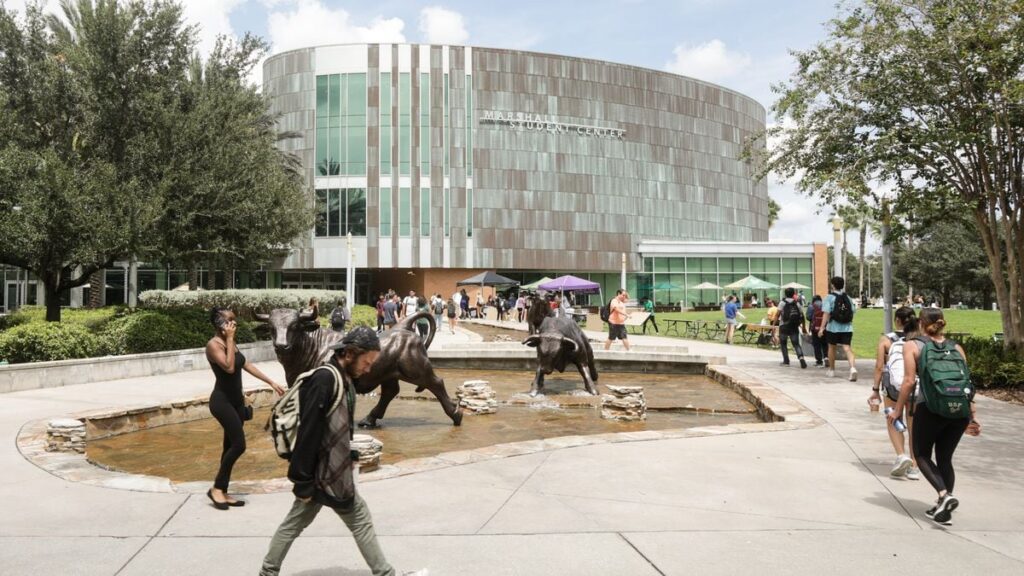The University of South Florida on Thursday announced plans to create the state's first college of artificial intelligence and cybersecurity.
The university, which still requires approval from the USF Board of Governors, will also offer undergraduate and graduate programs in addition to certificate and continuing education options. It will also bring together existing faculty at the university who research AI, cybersecurity, and computing.
Approximately 200 USF faculty members are already conducting research in related subjects, according to a USF news release.
In the U.S., “demand for AI skills has increased five times,” according to the release. He also said the National Science Foundation awarded more than $800 million in funding for AI-related research last year.
In 2020, the University of Florida announced plans to incorporate AI into all graduate curricula following a $70 million donation.
“As AI and cybersecurity evolve rapidly, the demand for professionals skilled in these fields increases, along with the need for further research to better understand how to leverage powerful new technologies in ways that improve society.” continues to rise,” said USF President Leah Roe. release. “Through the expertise of our faculty and our strong partnerships with the business community, the University of South Florida is strategically positioned to become a global leader in these fields.”
A task force including faculty members and the school president has been formed and is scheduled to issue its first report. University officials hope to launch the university by fall 2025, and are still considering what its structure will be and whether a new dean will be needed.
The release states the task force will seek further input from faculty and other stakeholders.
Sudeep Sarkar, chair of USF's Computer Science and Engineering Department, who led the task force, has been researching AI since its inception 30 years ago. Like the rest of USF's curriculum, it will be something that needs to constantly evolve, he said.
“For example, there are non-technical issues related to ethics, issues related to article privacy, and these types of issues that are important in the social context of the introduction of these technologies,” he said. “And not only do we need to make sure that users are aware of these issues, but we also need to ensure that the designers of these technologies address these issues at the design stage.”
USF President Prasanth Mohapatra said the university will collaborate with industry partners in the Tampa Bay region and across the country.
He said the university would launch with existing faculty who are likely to maintain their current joint appointments at the university. The university plans to begin recruiting soon and hopes to hire 20 to 25 new faculty members. Eventually, he said, he will begin a capital campaign for the building.
Exploring the question of how machine learning can impact society will require faculty from a variety of disciplines. Mohapatra said.
“AI is all about learning from datasets, and datasets are what we give them to drive decision outcomes, so they can easily become biased,” he said. . “The first part is to leverage AI as much as possible to make our lives better. But on the other hand, we need to be careful to use AI in an ethical way. ”
Leaving AI unchecked “could have dire consequences,” he added. “So we have to be very careful that our adversaries, the bad guys, don't use the same technology that is giving us negative benefits. We must protect it.”
Sarkar, chairman of the task force, said he hopes people will let go of their fear of AI.
“Our philosophy at USF is to unleash human potential,” he said. “It's meant to be a tool to help us do things better. It's just a tool.”
Divya Kumar covers higher education for the Tampa Bay Times in partnership with Open Campus.


